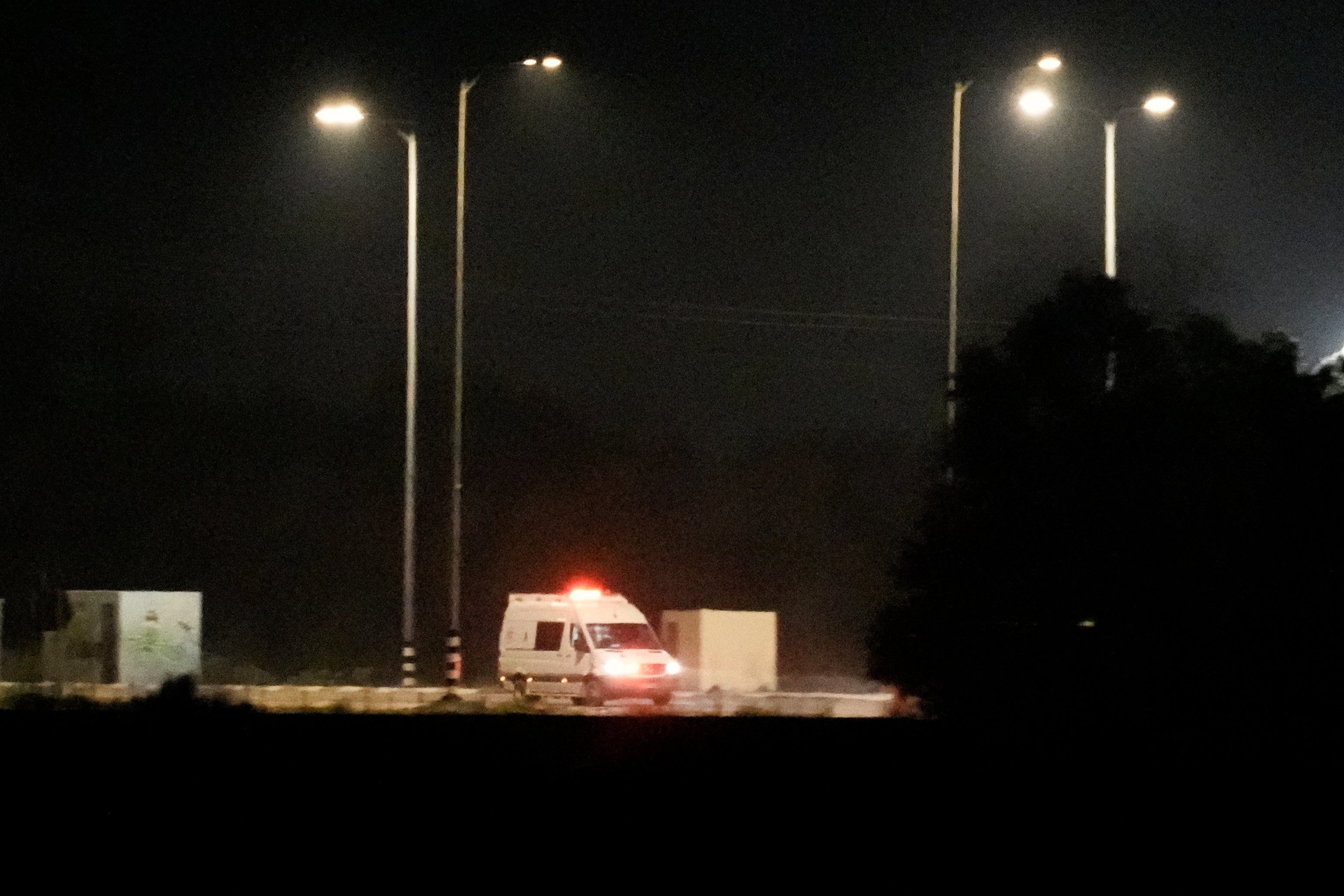At least 10 Thai hostages released by Hamas
Hamas freed at least 10 Thai nationals seized in the group’s surprise attack on southern Israel last month and held until hostages went free on Friday

Your support helps us to tell the story
From reproductive rights to climate change to Big Tech, The Independent is on the ground when the story is developing. Whether it's investigating the financials of Elon Musk's pro-Trump PAC or producing our latest documentary, 'The A Word', which shines a light on the American women fighting for reproductive rights, we know how important it is to parse out the facts from the messaging.
At such a critical moment in US history, we need reporters on the ground. Your donation allows us to keep sending journalists to speak to both sides of the story.
The Independent is trusted by Americans across the entire political spectrum. And unlike many other quality news outlets, we choose not to lock Americans out of our reporting and analysis with paywalls. We believe quality journalism should be available to everyone, paid for by those who can afford it.
Your support makes all the difference.Hamas freed at least 10 Thai nationals seized in the group's surprise attack on southern Israel last month and held until hostages went free on Friday.
Thai Foreign Minister Parnpree Bahiddha-Nukara wrote online that he was “overjoyed.”
He had traveled more than three weeks ago to Egypt and Qatar to seek their help in obtaining the hostages’ freedom. Thais were the biggest single group of foreigners taken hostage.
Thailand did not release the kidnapped people’s names or conditions, but thanked Qatar, Israel, Egypt, Iran, Malaysia and the International Committee of the Red Cross.
“It is our deep hope that all remaining hostages will be taken care of, and will be safely released at the earliest opportunity,” the Thai Foreign Ministry said.
Prime Minister Srettha Thavisin was the first Thai official to post news of the release, writing on the X social media platform, formerly known as Twitter, that 12 had been freed. The spokesman for the Qatari foreign ministry, Majed al-Ansari, posted on X that the number was 10.
Thailand said that it was checking the conflicting information on its kidnapped citizens, often farmhands who seek work in more developed countries like Israel where there is a shortage of semi-skilled labor — at wages considerably higher than they can earn at home.
The Thai foreign ministry statement said the released workers crossed into Israel and were on their way to Hatzerim air base for processing, after which they would be sent to the Shamir Medical Center, where embassy officials would meet them.
A spokesperson for the hospital said staff were informed around 4 p.m. local time that they would be receiving the Thai hostages, which would be about the same time Thailand's prime minister and Egyptian officials made the news public.
Prof. Hagai Levine, head of the medical team at the Hostages and Missing Persons Families Forum, said that getting medical information about the Thai hostages' pre-existing conditions has been trickier than with released Israelis.
Ratana Sriauan, is a digital content creator from the province of Udon Thani in the poor northeastern region of Isan, where most of Thailand’s overseas workers hail from, and she wrote on Facebook about and abducted friend whom she callled by a nickname.
“I wish you Tee, to be among the group that has been released. God blessed them. I am delighted for the relatives of those who got their loved ones released and will see them soon.”
Iran and Thai maintain friendly relations and prominent members of Thailand’s Muslim minority made unofficial trips to Tehran to seek the hostages' freedom.
Foreign Minister Parnpree had said that his Iranian counterpart, who was serving as Thailand’s intermediary with Hamas, had told him there would be “good news soon.”
Government leaders in both Thailand and Iran like to point out that relations between the two countries date back more than three centuries, with diplomatic missions from Persia followed by Persian families settling in what was later to be called Thailand.
Some of the descendants of the early Persian settlers became prominent in Thai society and even in politics, although Thailand is 90% Buddhist with a relatively small Muslim population.
Trade, particularly the sale of Thai rice to Iran, has helped maintain good bilateral relations, despite sometimes heavy handed efforts to suppress a Muslim separatist insurgency in the deep south, where the provinces have Muslim majorities.
The missing workers were among about 30,000 Thais employed mostly in Israel’s agricultural sector. According to Thailand's foreign ministry, 39 were killed in the Oct. 7 attacks, and 26 abducted. More than 8,600 workers have been voluntarily repatriated since the attacks, the Labor Ministry has said.